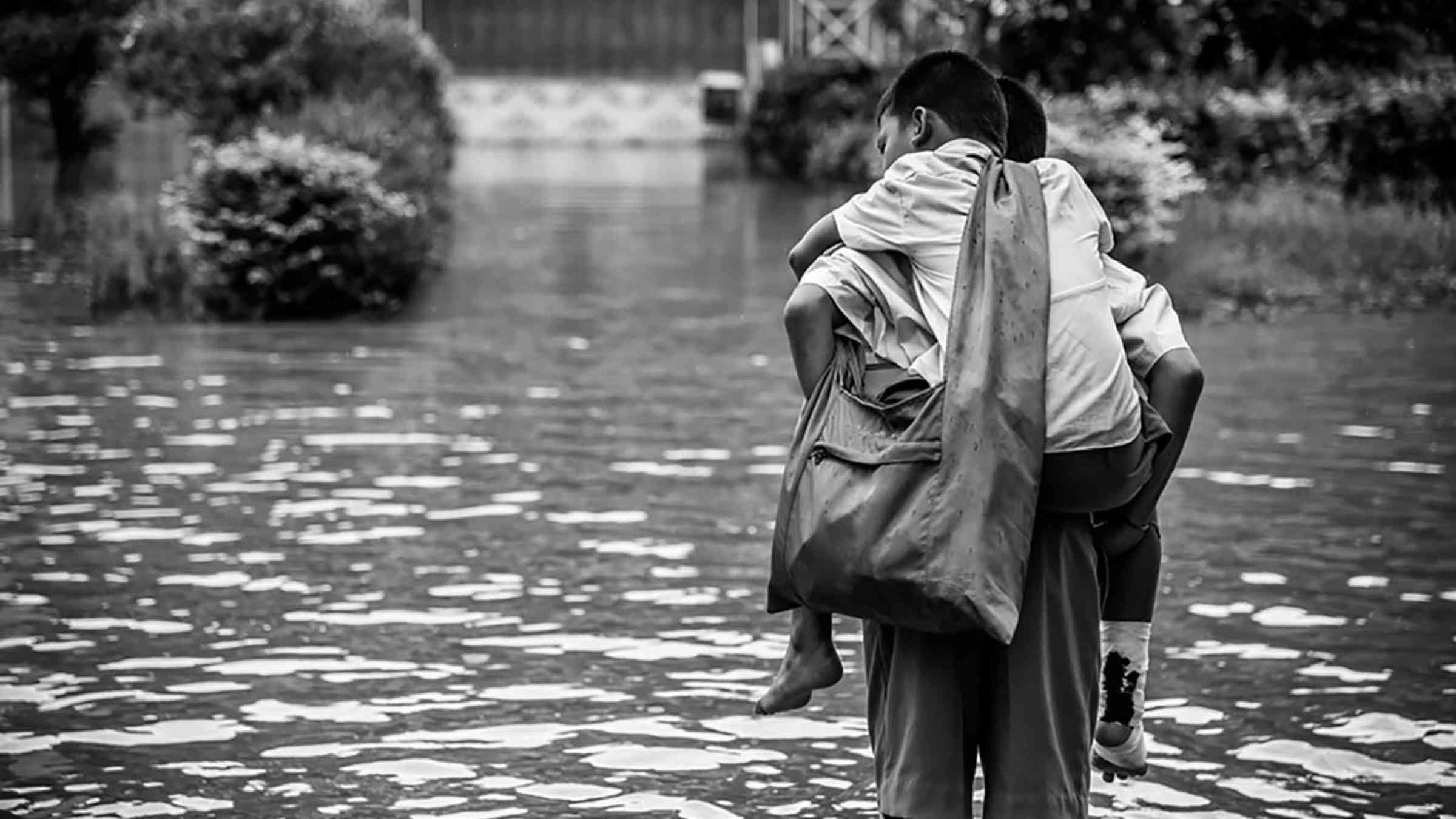Please help us improve PreventionWeb by taking this brief survey. Your input will allow us to better serve the needs of the DRR community.
Climate Academy 2023: Supporting community choices in a changing climate – learning from planned relocations

The impacts of climate change are increasingly being felt around the globe, in ways often more intense than anticipated just a few years ago. There is growing consensus that the next few years present the last window of opportunity to steer the world in a better and safer direction and to avoid the worst consequences. The scale and ambition of the climate challenge require new ways of thinking and working – across sectors and thematic silos. Achieving sustainable development in countries across the globe will also require innovative forms of social engagement, along with new and improved technologies and collaborative mechanisms. While scientifically informed climate change policies have progressed, peoples’ perspectives, aspirations, hopes and pathways to climate action are not sufficiently understood. Climate change policy is often global by design, but several implementation pathways are inherently local, necessitating improved vertical coherence. At the same time, while multilateral policy making mechanisms are facing challenges to gain commitments, people are increasingly voicing their dissatisfaction with the failures of contemporary political processes in delivering effective and just climate action.
In this context, science-based participatory approaches are key to steer climate action. The Climate Academy programme aspires to address these challenges through a series of dedicated events. The “People’s Pathways to Climate Action – Climate Academy” 2023 is jointly organized by United Nations University’s Institute for Environment and Human Security (UNU-EHS) and Munich Re Foundation (MRF) in collaboration with the UN Climate Change Secretariat (UNFCCC). The International Organization on Migration (IOM) is a special partner for the 2023 academy.
The Climate Academy 2023 will take place in two stages:
- Stage I: virtual 11 – 15 September 2023
- Stage II: in-person event 25-29 September 2023
The stage II (in-person) event is scheduled to take place in Dakar, Senegal depending upon the COVID-19 situation and prevailing regulations. In case an in-person event will not be possible, stage II will take place virtually as well. Additionally, to virtually engage with interested actors from across the globe and enhance our collective voice, key virtual events of the academy will be open to everyone. The 2023 academy will have a special focus on sharing lessons from experiences of planned relocations.
Apply here
Location: Dakar, Senegal
Objectives of the Academy programme
The Climate Academy programme has three objectives:
- First, it aims to advance the scientific understanding of people’s perception and concerns towards climate change induced risks, including indigenous knowledge systems and values. It aims to do so by convening leading researchers, policy makers, practitioners and other key stakeholders to collect, discuss and jointly advance latest approaches related to the academy’s thematic focus from across scales and world regions. The academy will also address and debate existing participation mechanisms in the global climate change policy making and implementation mechanisms.
- Second, it aspires to apply this understanding to advance participation pathways to enhance the effectiveness of the existing and proposed solutions that reduce exposure and vulnerability of people and societies to climate change impacts.
- Third, the academy aims to foster the science-policy-action interface by feeding knowledge and solutions gathered and generated directly into policy processes (crucially, in collaboration with UNFCCC). At the same time, the agenda of the academy is itself driven by transdisciplinary co-creation to facilitate the formulations of comprehensive solutions and their implementations. Academy participants will engage with these selected policy gaps and needs and contribute the created knowledge and reflections into UNFCCC discussions around national adaptation planning, closing adaptation knowledge gaps, planning and creating contingency arrangements, research dialogues, relevant committee work programs and other policy outlets. Academy participants similarly have the opportunity to interact with communities of practice engaged with decision making.
Candidate Profiles
We are looking for researchers, policymakers, and practitioners with documented experience of working on the themes of interest to the Academy at one or more of the aforementioned scales. Successful candidates are qualified persons with profiles such as doctoral researchers in the final stages of their research, post-doctoral fellows, lecturers, assistant professors, practitioners working in public bodies, implementing agencies, civil society advocates, or any other organization related to the theme of the academy. Particular attention will be given to outstanding candidates from Least Developed Countries. Successful candidates are expected to fully participate in stage I and II of the Academy. Selected participants are expected to engage proactively before and during the academy and contribute to Academy outputs. Advanced English language skills will be necessary.
Explore further
Please note: Content is displayed as last posted by a PreventionWeb community member or editor. The views expressed therein are not necessarily those of UNDRR, PreventionWeb, or its sponsors. See our terms of use
Is this page useful?
Yes No Report an issue on this pageThank you. If you have 2 minutes, we would benefit from additional feedback (link opens in a new window).